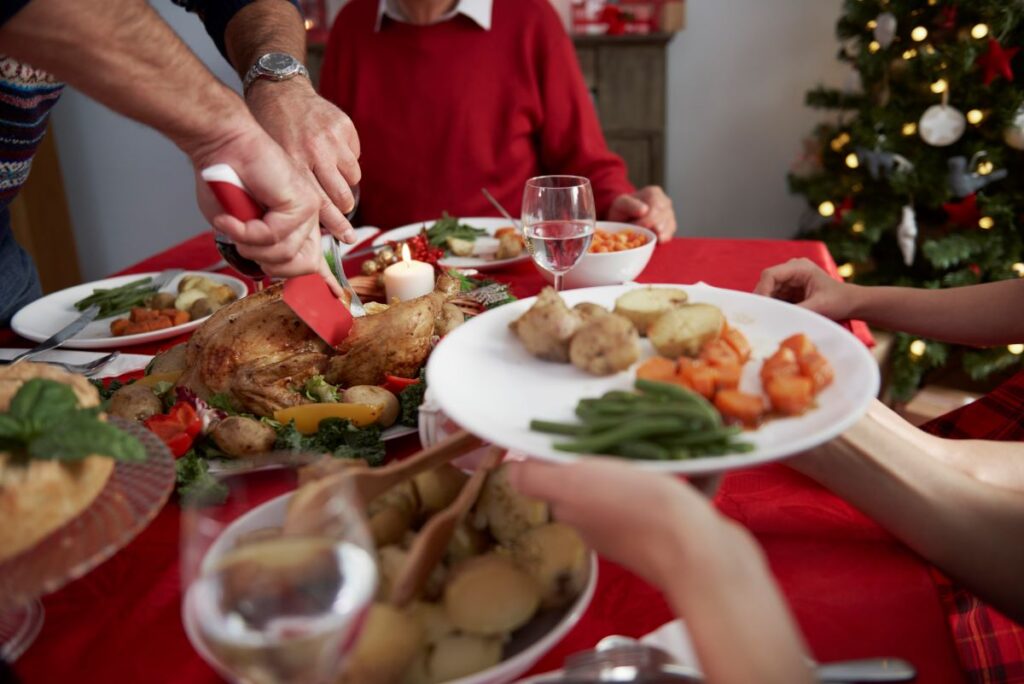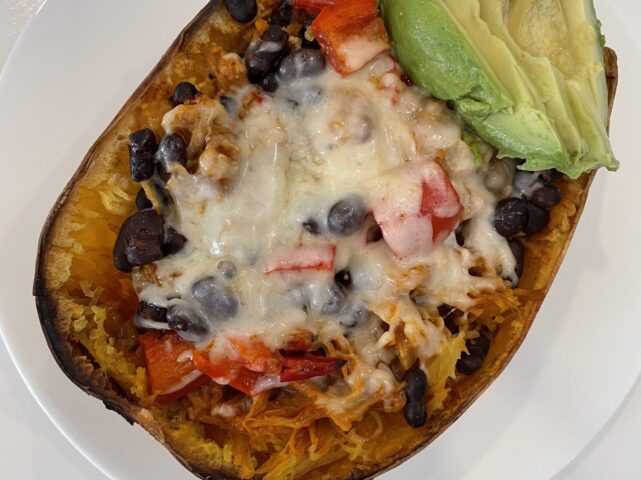Navigating the Holidays While in Recovery: A Compassionate Guide

By Paige Mandel MS, RD, CDN
Adapted from Balance Webinar “Holiday & Recovery: Your Guide to Navigating the Holidays and Recovery” hosted by VP of Admissions & Clinical Services Danielle Levitine, MS BC-DMT LCAT CED-CAT and Dietitian Quinn Haisley, MS, RD.
Recorded Webinar & discussion linked here
Why Are The Holidays Difficult to Navigate While in Recovery?
- The holidays typically mean being around an abundance of food and potential food triggers
- Diet and food talk increase during the holiday season
- Challenging interactions with family
- Heightened stress can increase the urge to rely on unhelpful behaviors
The Before: How to Prepare
- Identify your needs
- Set your goal
- Ex: I will complete my meal plan today
- List out potential trigger points
- What resources do you have to navigate these potential triggers?
- Create, review and communication your plan with your team of providers
- Reach out to someone at the event who you can share your holiday recovery plan with
Set your mentality
- Be compassionate with yourself
- Give yourself permission to enjoy the moment
- Set expectations that feel good
- Set boundaries with your family members ahead of time
- Examples:
- Please don’t make comments on other people’s appearance during this holiday
- I am really looking forward to getting together for the holidays! To make it as enjoyable as possible for me I’d rather we don’t talk about weight or food
- Allow yourself to say no
- Focus on gratitude
- Prepare for things that are going to be out of your control such as food choices and preparation style
- Examples:
Action steps
- Prepare your self-soothing toolbox
- Wear comfortable clothing
- Schedule your meals and snacks
- Do your favorite self-care activities
- Gather inspiration of why recovery is worth it to you to have handy
- Plan fun activities before and holiday events to help keep a positive focus and balance i.e. ice skating, baking cookies with family, massages
- Set reminders on your phone to check in with yourself throughout the day
- Make sure your recovery plan is accessible and ready to go
During the Event:
- Follow your meal plan
- Aim to eat regular meals and snacks throughout the entire day
- If you can, pack snacks if you know you will be away from home for a long period of time. However, don’t use this to replace fear foods with safe foods
- Enjoy variety! Approach food with curiosity
- Look for your early warning signs that can lead to unhelpful behaviors such as spike in feeling body dissatisfaction
- Avoid making body judgements
- Set boundaries or walk away from any conversation regarding body talk
- If you have strong urges
- Reach out to your support person who you feel safe and comfortable talking to, someone in your corner
- Utilize your tool box
- Have a supportive exit strategy in case you feel overwhelmed
After the event: Defining your exit strategy
- What to prepare for
- Can you be alone after the event? Do you want someone to be with you?
- Do you have adequate support?
- What positive activities can be supportive?
- Volunteer
- Schedule session with team
- Journal
- Self-care







